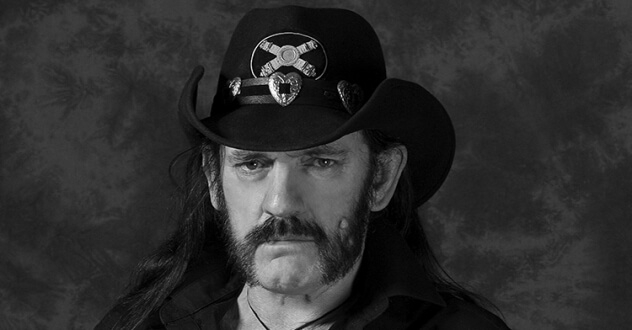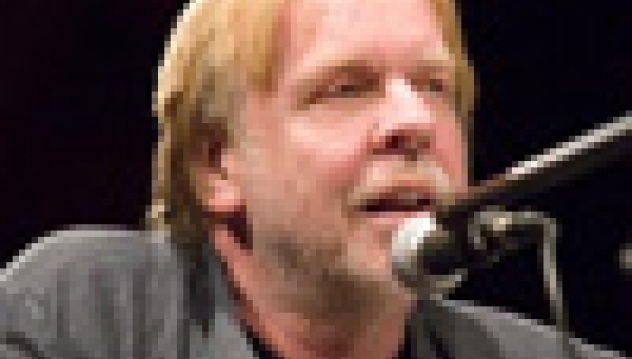“My upcoming show in Bulgaria is going to be a very different concert.”
Rick Wakeman shall perform his first-ever concert in Bulgaria on September 1, 2008. The event promises to be a unique one, as the maestro thinks himself…
Vassil Varbanov: Good morning, Rick!
Rick Wakeman: Good morning.
V. V.: How are you? I believe it’s too early for you in the morning out there in England?
R. W.: Oh, I get up very early – at 6 in the morning. I have three cats and they jump all over me at six o’clock, ha-ha!
V. V.: Next Monday, September 1, you’re going to perform in Plovdiv, which is a very ancient Bulgarian city. Please tell us more about your show. What are you going to present in Plovdiv?
R. W.: It shall be something very, very different. They asked me early this year if I would like to come – just me on the piano and a symphony orchestra. I’ve worked with many symphony orchestras, but never just with solo piano and orchestra. Because I’ve never done it before, I just thought this is something fantastically different to do. There were no orchestrations available just for piano and orchestra, so we spent the last three months orchestrating a lot of music. It’s going to be a very different concert and the first for me, too.
V. V.: You’re one of the keyboard wizards of all time – you’ve worked solo, with Yes, even with Black Sabbath in the early 70’s. How would you describe the presence of keyboards in rock and especially in its heavier forms?
R. W.: For a long time keyboards were not used in the heavier rock music. I did some moog sounds and stuff on “Sabbath Bloody Sabbath” (1973), but they never had a keyboard player in the band… until now. I mean, 5 or 6 years ago a lot of the very heavy band who’ve never had keyboards before – like Black Sabbath and The Who – brought keyboard players in. I worked with Ozzy Osbourne on the “Ozzmosis” album (1995), which is just full of keyboards. In the early days heavy bands were very much guitar bands, but now the keyboards have become a part of virtually every band.
V. V.: Besides music, you also have this radio show on Planet Rock. As war as I know, it’s something like Saturday noon?
R. W.: It’s Saturday morning – 10 o’clock GMT… You know, I was just going to say something when you mentioned that I’ve played on “Sabbath Bloody Sabbath”. That was in 1973. My second eldest son, Adam, actually plays with Black Sabbath and Ozzy Osbourne – he’s playing the music that I recorded with them, and he wasn’t even born when I did it! As for my radio show, it’s on digital radio, so you can pick it up on the Internet (www.planetrock.com) or on satellite. It’s a rock show with a lot of comedy. We have a lot of e-mails from all over the world that come in. It’s basically great rock music and a lot of jokes.
V. V.: To what extent, according to you, is radio still important to rock music? We know for example that Planet Rock’s previous owners wanted to shut down the station…
R. W.: It was owned as part of a big organization that owned many stations. It was a surprise to everybody when they said they were going to close Planet Rock down, because it is by a long way the most successful digital station. As well as winning lots of awards, it’s also got them the biggest listenership – in England there are two million digital radios, and on my Saturday morning program we get 800,000, which is nearly 50% of everybody who tune in to a radio! So the interesting thing was they put it up for sale, and within one hour of them announcing that, there were 19 different companies who came in and wanted to buy it! In the end of the day, it was actually just one man who paid to buy Planet Rock, and all of the musicians who work on the radio joined the consortium (Tony Iommi, Ian Anderson, Gary Moore, Fish). The owner however is just one – Malcolm Bluemel.
V. V.: To what extent do you play different music in your radio show compared to the other guys working there? Do you play just prog rock?
R. W.: No, not at all. We play all the classic rock like Led Zeppelin, The Black Crowes, early Genesis, The Who, Queen… We’d like to think that almost every track you hear will make you go like, “Oh, I know that!” There are so many great tracks… Of course, we do play new stuff every now and then, but we tend to put music that’s sort of relative to what we play and… To be honest with you, we just have fun.
V. V.: So to what extent is radio important in the world of today?
R. W.: It’s the most important thing, because music is for the ears, to listen to – that is the great thing about radio. Besides, the radio is portable, especially nowadays – you can take it anywhere. The thing that I like about radio is that it’s different from an mp3 player where you can play only what you like, but you’ll never get to hear something that is different. You know, I listen to the radio and I probably know 90% of the music that’s been played, but suddenly there’s something I don’t know and I say, “Hey, that’s fantastic, I’d like to get that!”
V. V.: Finally, as we have British group being the Band of the Week on our radio – Motorhead – what do you think of these guys?
R. W.: They are still as popular as ever and… They’re just a great metal band, real characters that produced one of the classic tracks of all time, “Ace of Spades” – a great classic tune that a lot of other bands have covered over the years. Besides, I know Lemmy very well, we worked together on a film once, and I still see him every now and then. He’s just a great guy!
Copyright: Tangra Mega Rock

